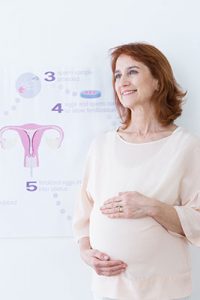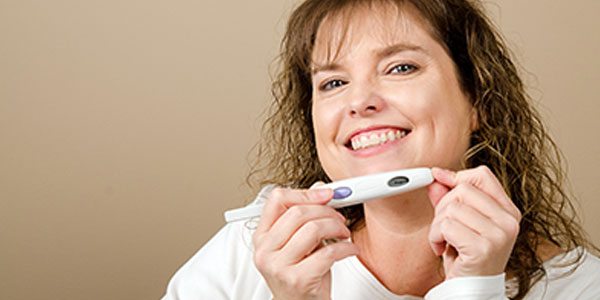If you are a woman who is getting older and closer to menopause, you may begin to wonder whether you can still conceive a baby. This might be especially relevant if you are in your 40s, have never had a child and now you may feel your biological clock beginning to run out. Wondering whether you can still get pregnant at this stage of your life is important because the answer can directly affect your birth control and family planning choices.
One thing to remember about this stage of your life is that it is a transitional one. Even if you are experiencing a myriad of symptoms such as irregular menstrual periods and hot flashes, that doesn’t mean pregnancy isn’t possible. However, it means you are considerably less fertile than you used to be.
It’s important to note that you have not officially reached menopause until you have not had a period for a full year. After you reach menopause, your hormone levels are different to the point where your ovaries will no longer produce eggs, which means you will no longer be able to get pregnant naturally.
What Happens During Your Monthly Cycle?
When you are still in your reproductive years, your body produces estrogen, progesterone, luteinizing hormone (LH) and follicle-stimulating hormone (FSH). Sometime during the middle of your monthly menstrual cycle, estrogen, LH and FSH all work together and lead to the release of an egg when you ovulate. Ovulation cannot take place unless your hormonal levels are in the normal range. If sperm fertilizes an egg, the LH stimulates progesterone, which helps to maintain pregnancy.
What is Menopause?
“Menopause” means the end of a woman’s menstrual cycle and periods. The process doesn’t occur overnight and it can take years before you have reached menopause after going through changes in your cycle and body.
What is Perimenopause?

Even though your fertility is in the declining phase during perimenopause, it is still possible to conceive at this time. This means that if you don’t want to end up getting pregnant, you will have to continue using birth control or contraceptives during perimenopause. The phase can also last for several years.
When you are going through perimenopause, it can seem that your period has ceased, but without warning, one can come months after your prior period. During this stage, you may believe you have actually reached menopause, but you will not officially be at that phase until you have not seen a menstrual period for one full year. In general, for most women, reaching menopause does not take place until sometime between the age 40 and 55. On average, a woman will officially reach menopause by the age of 51.
Once you have reached menopause, it means you can no longer ovulate because your levels of both estrogen and progesterone have reached their lowest point. Also, at this point, you can no longer conceive a baby as a result.
Is Pregnancy After Menopause Possible?
Interestingly, in-vitro fertilization (IVF) is still possible after you have reached menopause. That means you can use your own eggs that you had frozen when you were still fertile or use donor eggs to have a baby. However, you need to receive hormone therapy as well to ensure that you can carry a child for nine months.
Generally, if you have not had a menstrual period for at least one full year, you have officially reached menopause. It means you are no longer able to naturally conceive a child and have reached a new stage of your life.





